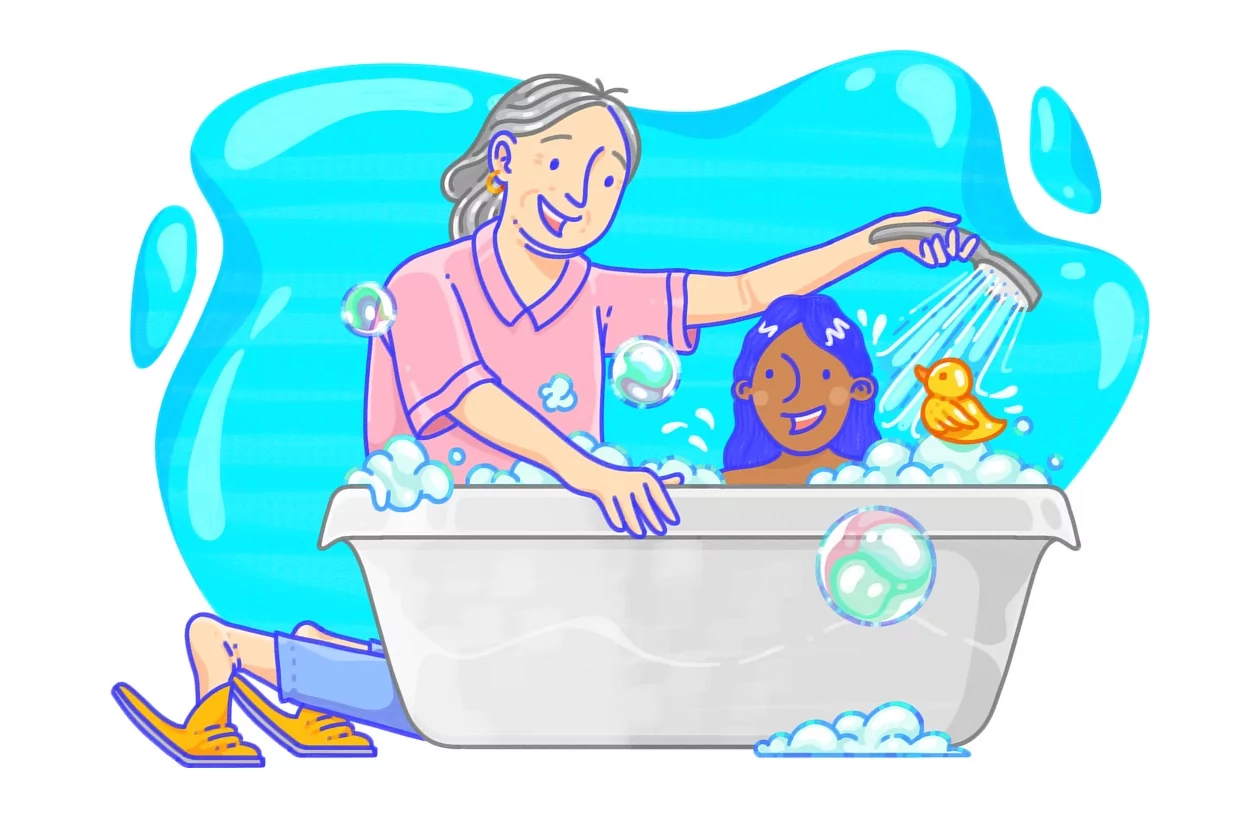A new diagnosis of any kind will spark questions for you, your loved ones, and others in your community. When we talk to parents, we often hear that sharing this diagnosis with friends and family can be a challenge, with questions like “how can I explain CPP to my child’s friends?”, “how can I make sure her teachers and coaches understand?”, and “how can I easily explain a CPP diagnosis to our family?”.
No matter how well-meaning family members, friends, and teachers are, they might not know how to engage with your little one in an appropriate way. Here are a few gentle guidelines to help those closest to you understand how to support your child.
Remind them that your kid is still a kid
If your child is significantly taller than their classmates or experiencing other visible symptoms of early puberty, they may be expected to act as old as they look. But it’s important that the people in your child’s life treat your child according to their actual age, rather than the age they appear to be. Therefore, it might be helpful to inform and periodically remind any authority figures – teachers, athletic coaches and peers’ parents, for instance – that your kid is still very much a kid.
Here’s one way you can address this: “Although my child looks like they might be an eight year old, they are only four, and it’s important that they’re treated like all the other kids in class. Can you keep that in mind and let me know if any of their classmates seem to be treating them differently? That way, I can have this conversation with those classmates’ parents to make sure we’re all on the same page.”
Help them treat your child with sensitivity
Childhood is when we develop our self-esteem: it’s crucial to empower your child’s siblings and other loved ones to speak to your child with sensitivity. Assure them (and your child) that what they are going through is normal because it is! Everyone goes through puberty… it’s just happening a little sooner than expected. Your child might be embarrassed about their changing body, so setting ground rules with other family members – for example, ‘every body is unique, we don’t compare our bodies to anyone else’s in our home’ – is key.
Here’s one way you can address this: “It’s true that your little sister is bigger than you were at her age. We all grow at different paces, and that’s nothing to be ashamed of! Remember that your sister is still very young, and it’s our job as a family to treat her with kindness and not focus on her size. What’s our house rule? Every body is different, there’s no need to compare.”
Notice if they disengage
Sometimes, when people are uncomfortable, they disengage — even and especially adults. It may be worth pulling the parents in your child’s playgroup aside to let them know what’s going on. You also deserve to feel supported on your child’s CPP healing journey, and a heart to heart could help build trust among the caretakers in your circle. With or without CPP, raising a child takes a village, so make sure your village is equipped to show up for you and your kid.
Here’s one way you can address this: “Can I share what’s going on in my family with you? My son was recently diagnosed with CPP. I don’t want him to feel isolated and I don’t want to feel isolated either! This playgroup is so important to us. Let me tell you a little bit more about his diagnosis…”
TPI.2021.2612.v1 (v1.1)




